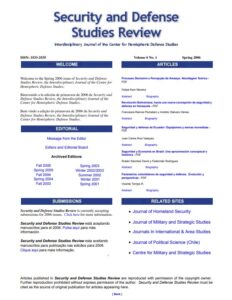This article addresses the relationship between security and economics in Brazil, from an historical perspective inspired by the ideas of Barry Buzan. After identifying the theoretical approach underlying the analysis, it identifies three historical scenarios: the rise of development populism within the framework of the New State of Getúlio Vargas; the import substitution model prevailing from the early post war period to the late 1980s; and lastly, the establishment of the Bureaucratic State and the adoption of the doctrine of national security. It concludes with a brief overview of the economic security project of the present era, dealing with the growth of MERCOSUR and sustainable development of the Amazon region, as well as regional integration agreements.

